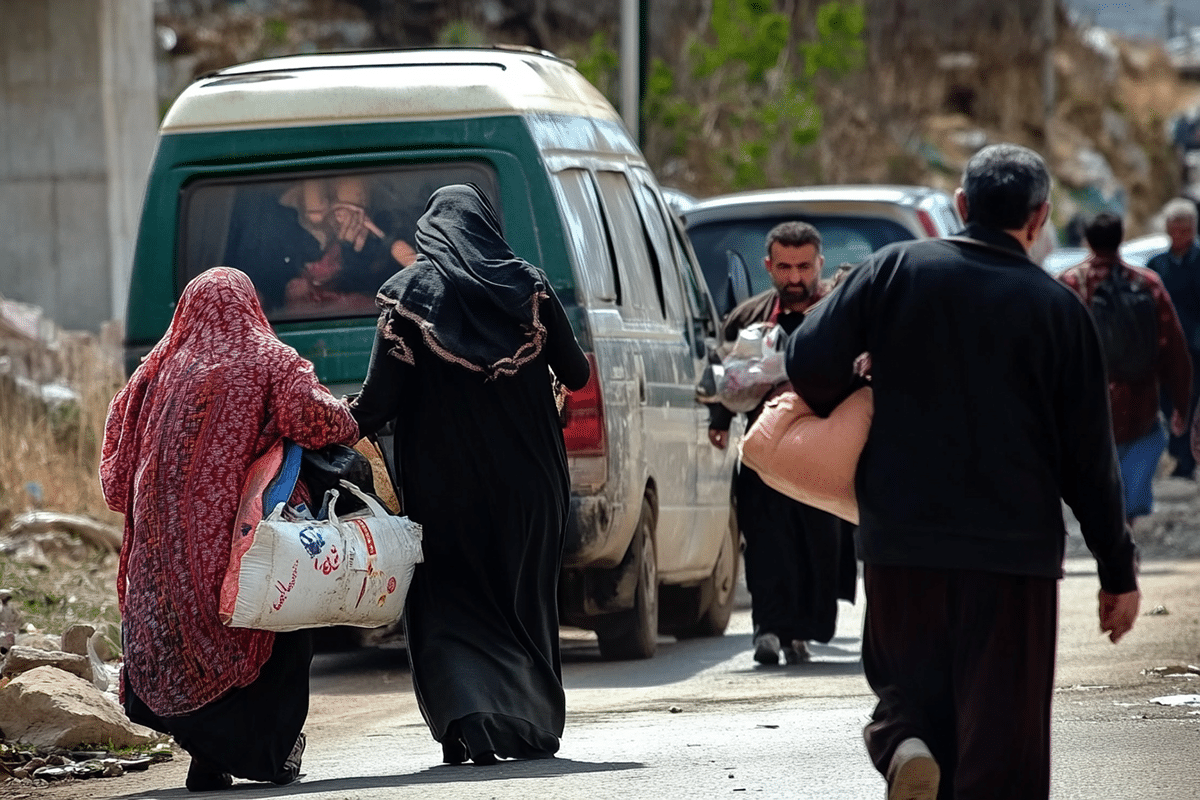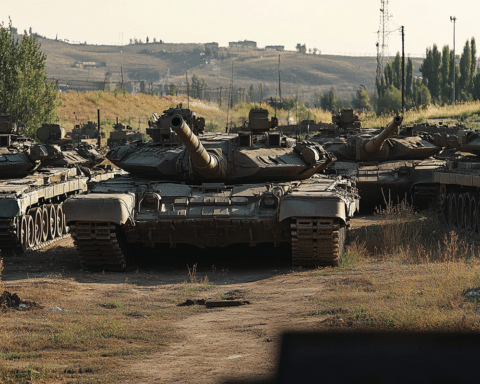As conflict intensifies in Lebanon, thousands of families have been forced to flee, seeking refuge in neighboring Syria despite the ongoing war there. Over recent days, long lines of buses and cars have clogged the routes toward the Syrian border, with some families even making the journey on foot. Traffic jams extending several kilometers from the border have left many waiting for hours, hoping to escape the growing violence in their home country.
The exodus is a direct response to Israel’s aerial bombardment of southern and eastern Lebanon, which local officials report has killed more than 600 people, including a significant number of women and children. Israeli military operations are focused on Hezbollah fighters and weapons, but civilians continue to bear the brunt of the attacks. As strikes target communities across the country, including densely populated areas, the number of displaced families is expected to rise sharply.
Once across the border, families face additional hours of waiting to be processed by overwhelmed Syrian border officials. Aid workers on the ground have been distributing food, water, blankets, and mattresses to those in need. Yet, the influx of refugees has strained the capacity of relief operations, forcing many to spend the night outdoors as they wait their turn. Some of the people arriving from Lebanon have visible injuries, a grim reminder of the intensity of the violence they are fleeing.
Lebanon, which has hosted over a million Syrian refugees since the Syrian civil war broke out in 2011, is now seeing many of its own citizens join the same exodus that brought Syrians into Lebanon more than a decade ago. Syria’s civil war erupted from a peaceful uprising that was met with brutal government repression, spiraling into a conflict that has left the country fractured and devastated. For many, Lebanon had been a place of refuge; now, it is a country in crisis.
In Syrian border towns like Jdeidet Yabous, families can be seen sitting on the side of the road, their belongings packed into bags, waiting for transportation. Some have reported spending eight to nine hours just to reach the border from their homes in Lebanon. At the crossing, people must navigate additional challenges. Syrian citizens are required to exchange $100 into local currency before entering the country, a measure intended to support Syria’s struggling economy. However, the surge in refugees has caused a shortage of Syrian pounds, adding further delays.
Among those returning are Syrian refugees who had fled the war in their home country years ago. For some, this marks the second time they have been forced to abandon their homes. One Syrian family fleeing from the Lebanese coastal city of Tyre described how their house was destroyed during the bombardment, leaving them no choice but to return to Syria. Other families, like those from eastern Syria, expressed uncertainty about where they would go next, as many no longer have homes to return to.
Lebanese families, too, are fleeing en masse. Residents of southern Lebanon have been particularly hard-hit by the conflict, with some villages reporting multiple homes destroyed and neighbors killed in the strikes. Many are opting to seek temporary shelter in Syrian suburbs, despite the ongoing war. Renting an apartment in Syria is significantly cheaper than in Lebanon, and some families had already rented properties as a precautionary “Plan B” in case they needed to flee.
However, the situation remains deeply complicated. While Syria may appear to offer relative safety for now, it is still a country embroiled in conflict. For Syrian refugees, returning to their homeland comes with the risk of arrest for alleged ties to opposition groups or forced conscription into the military. Syrian President Bashar al-Assad recently issued an amnesty for crimes committed before September 22, including military draft evasion, but previous amnesties have failed to convince refugees to return. Many Syrians fear for their safety and hesitate to leave Lebanon, despite the deteriorating conditions there.
As the situation worsens, the flow of refugees into Syria continues to grow, marking a grim reversal of fortune for both nations. What was once a haven for Syrians seeking refuge has now become an escape route for Lebanese families desperate to find safety amid the escalating violence.




